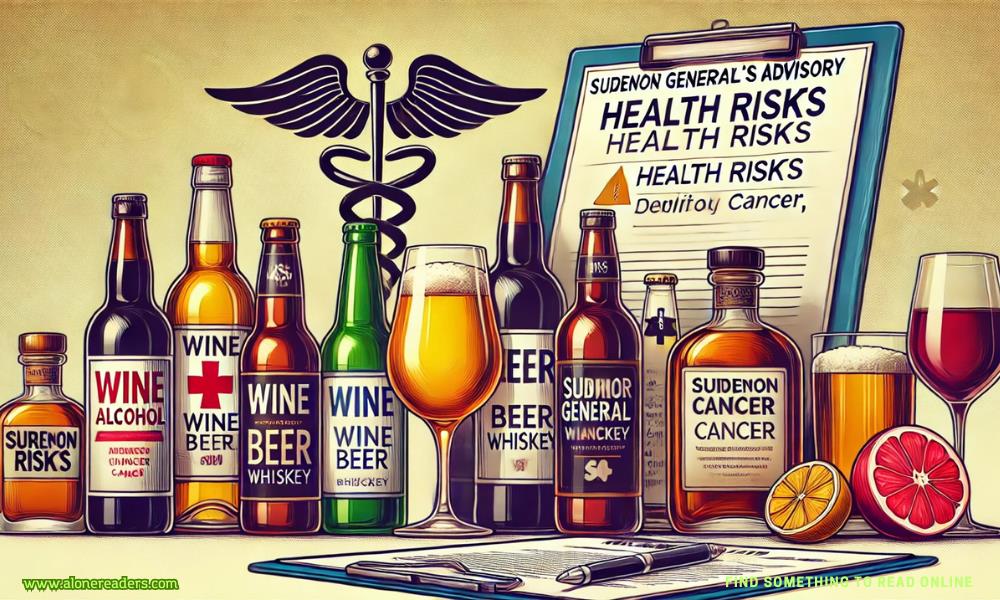
The U.S. Surgeon General, Dr. Vivek Murthy, has called for updated warning labels on alcohol containers to alert consumers to the link between alcohol consumption and an increased risk of cancer. This proposed change comes in response to growing scientific evidence that even minimal alcohol intake can elevate the risk of various cancers, including breast, esophageal, and liver cancers. Dr. Murthy’s initiative aims to close a significant gap in public awareness and help consumers make informed decisions about their health.
The current warning labels on alcoholic beverages in the United States, mandated by the Alcoholic Beverage Labeling Act of 1988, focus on risks associated with pregnancy, impaired driving, and general health concerns. These labels, however, do not address the cancer risks that have been extensively documented over the past four decades. According to the Surgeon General, this omission represents a missed opportunity to educate the public about a critical health issue. A 2019 survey cited in his advisory revealed that only 45% of Americans recognized alcohol as a risk factor for cancer, compared to much higher awareness levels for other carcinogens like tobacco and radiation.
Dr. Murthy emphasizes that introducing updated warning labels is a vital step toward enhancing public knowledge. He suggests that labels featuring imagery and rotating messages could be particularly effective in increasing awareness and influencing behavior. This approach builds on research demonstrating that visual cues and varied messages are more impactful than static, text-only warnings. By including warnings about cancer, the labels could provide a clearer picture of alcohol's health implications and empower consumers to make better choices.
The proposal has garnered support from public health advocates, who argue that such labels could save lives. A 2020 petition to the government noted that providing accurate information about the link between alcohol and cancer could significantly influence consumer behavior and reduce cancer-related mortality. However, these advocates acknowledge the substantial challenges that lie ahead. Implementing new warning labels requires Congressional approval, a process that could face resistance from the alcohol industry. Following Dr. Murthy’s announcement, some alcohol manufacturers experienced a drop in stock value, highlighting the economic implications of such a change.
Historical precedent suggests that altering public perception and behavior around health risks is a gradual process. The evolution of anti-smoking campaigns serves as a relevant example. After the Surgeon General's first report on smoking in 1964, it took decades to implement comprehensive strategies like advertising restrictions, public smoking bans, and taxation. Dr. Timothy Rebbeck of Harvard T.H. Chan School of Public Health notes that a similar timeline may be required to shift societal attitudes toward alcohol consumption and its associated risks.
Internationally, several countries have already introduced health warnings on alcohol labels. In South Korea, manufacturers must include one of three warning messages, two of which address the link between alcohol and cancer. Ireland has taken a pioneering step within the European Union by mandating labels that explicitly state, “There is a direct link between alcohol and fatal cancers.” This regulation, set to take effect in 2026, reflects a growing global recognition of the need for clearer consumer information about alcohol's health impacts.
In the United States, the path to updated labels remains uncertain. While Dr. Murthy has the authority to recommend voluntary labeling by alcohol companies, mandating changes requires legislative action. With a Republican-controlled Congress and an impending presidential transition, the political landscape adds another layer of complexity. However, the Surgeon General’s advisory represents an important first step in sparking a national conversation about alcohol and cancer.
The broader implications of this initiative extend beyond labeling. Public health experts hope it will catalyze a reevaluation of alcohol consumption guidelines to include cancer risk as a significant factor. By integrating this perspective, policymakers can develop more comprehensive strategies to address the health consequences of alcohol use. This could ultimately lead to a cultural shift similar to what occurred with smoking, where public awareness and policy measures worked together to reduce health risks.
Although updated warning labels may not appear on store shelves in the immediate future, the Surgeon General's call to action is a critical milestone in addressing alcohol's role in cancer risk. By bridging the gap in public knowledge, this initiative has the potential to save lives and improve overall health outcomes. While challenges remain, the momentum generated by Dr. Murthy's announcement could lay the groundwork for meaningful change in the years to come.